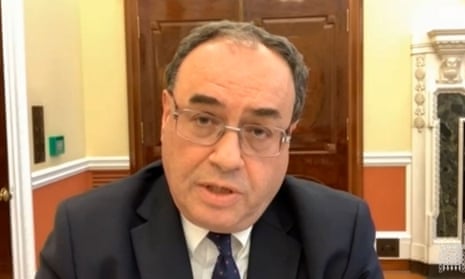The Bank of England will examine tightening banking regulations after the winding down of debt-laden Wyelands Bank, a lender majority-owned by troubled Liberty Steel boss Sanjeev Gupta.
Appearing before MPs on the Treasury select committee on Monday, Bank of England governor Andrew Bailey said there could be lessons to be learned after Gupta took control of Wyelands. The bank subsequently made a series of loans to a network of companies controlled by his associates.
“We will go back and look at the lessons,” said Bailey. “There have been some changes to the rules around acquisitions in recent years, but it is something we will go back to.”
Bailey said that while the central bank had forced Wyelands to curtail its activities over the last year, paying back borrowers and then depositors, an investigation could bring to light practices that will need further examination.
Former Conservative prime minster David Cameron lobbied as a consultant on behalf of finance company Greensill Capital to access government loans at the height of the first coronavirus lockdown in 2020. Greensill was a major lender to Gupta’s business.
Wyelands and Greensill Capital have ceased trading and Wyelands is the subject of an investigation by the Serious Fraud Office. Bailey added that the National Crime Agency was also involved in the probe into Wyleands.
Bank of England deputy governor Jon Cunliffe was asked why the application from Greensill was considered if the central bank had joined all the dots between Wyelands, Gupta and Greensill at the time of the loan application.
Cunliffe said he was aware of the relationships, but he treated the application to be part of the government scheme on its own merits and told the Treasury it fell outside the scheme.
The former City minister Paul Myners told the committee at a previous hearing that the government could end up footing the bill for unpaid state-backed loans and social support for thousands of steelworkers whose jobs are currently at risk at one of Greensill’s largest borrowers, Liberty Steel, owned by Gupta.
